‘War on our doorstep’: Eastern Europe fears for the future
Europe has been plunged into a situation it thought it would never see again, with several nations taking steps to up military spending in a move that is likely to transform the balance between guns and butter. Borzou Daragahi is in Bucharest, where people are terrified about what Russia will do next

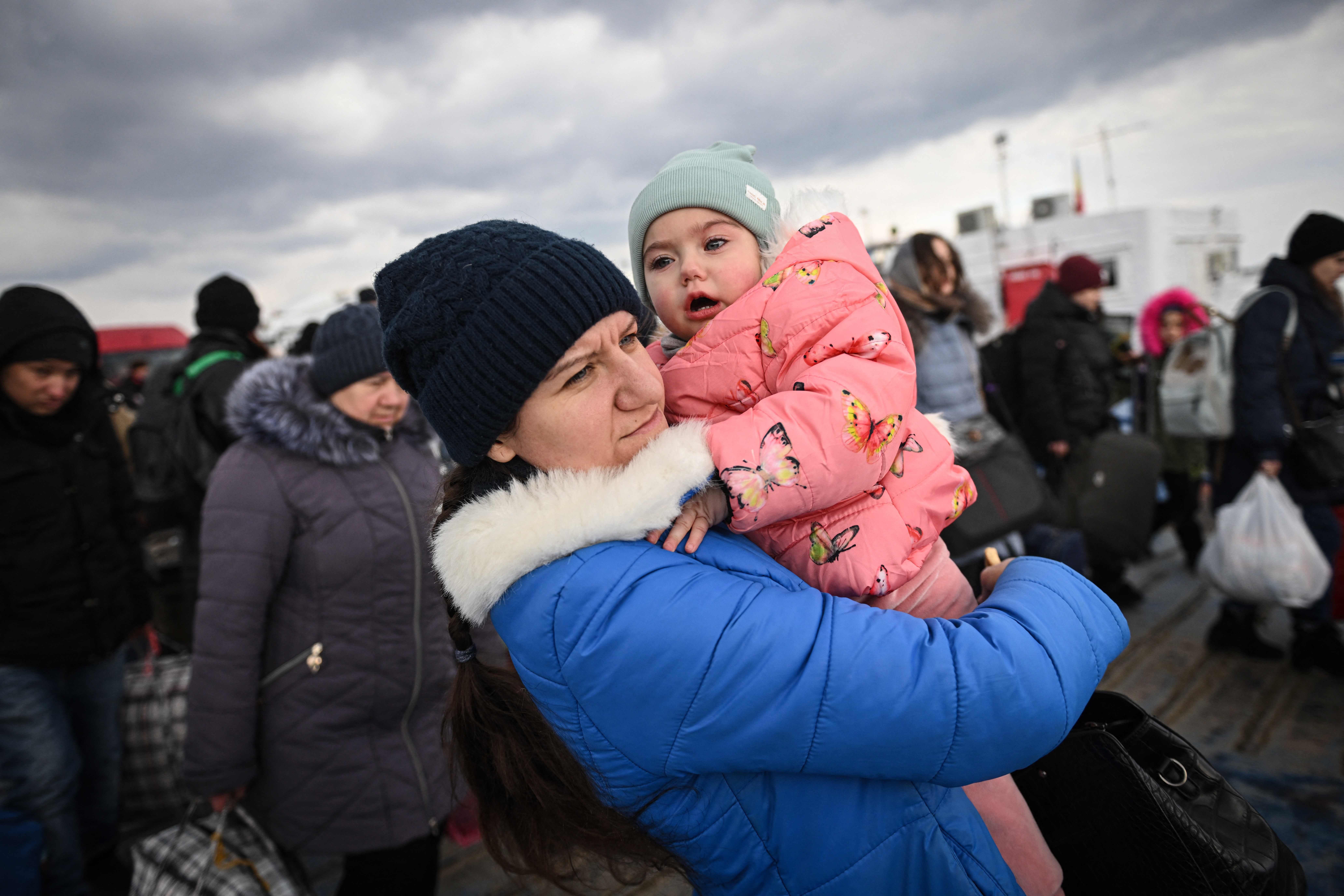
In less than two weeks, the world has changed, and a new darkness has gripped Europe. From the Baltic Sea to the Balkans, political and military leaders are reckoning with a reality transformed by the Russian invasion of Ukraine. And societies are only beginning to come to terms with the wide-ranging implications. The Kremlin’s ferocious assault on the country has upended assumptions about security and stability, as well as Europe’s future, that have been widely embraced since the chaos that ensued in the first years following the collapse of the Soviet Union.
“People are scared,” says George Scutaru, a former national security adviser and member of parliament in Romania, who now heads a think tank in Bucharest. “It’s something totally new to have this huge war on your border, to have this rhetoric, and to see thousands of people coming with only a few things on their persons and hoping to see their family again.”
Here in Romania, the fears are especially palpable. The country shares a 380-mile border with Ukraine, as well as a coastline along the Black Sea, a strategic location that Russia is seemingly attempting to dominate. Russian forces have already seized control of Serpent Island, a Ukrainian territory just a few dozen miles off the Romanian coast, giving Moscow the ability to strike at military or merchant ships emerging from the Danube River delta.
In addition, neighbouring Moldova, which is mostly populated by Romanian speakers and citizens, is in part occupied by Russian forces in the Transnistria enclave, a Kremlin-controlled neverland run by shadowy oligarchs. Many are terrified that they are once more on the front lines of a battle between the greatest powers on earth. The last time it happened, during two world wars – and later during the Cold War – it meant deprivation, oppression and death for Romanians.
The Bucharest government, which did away with the draft in 2007 and has a tiny professional army of 68,000, is now hastening through a proposal to allow men and women between 18 and 35 to sign up for a four-month military training programme to bolster its army reserve force, which has shrunk to 53,000 out of a population of 19 million. In contrast, Finland, with a population of 6 million people, has a reserve force of 900,000.
“We as Europeans thought that this would never happen to us,” says Virgil Balaceanu, a retired Romanian general who served for 40 years in the armed forces of his nation. “War was something far from Europe. Even the military men in the region thought that conventional war would never happen again. Unfortunately for the world, for us and for Europe, we now have a war on our doorstep.”
The hundreds of thousands of refugees from Ukraine now flooding eastern European cities and towns are the most visible signs of the new reality. Nearly a million have entered Poland, at least 260,000 have made their way to Romania, 250,000 to Moldova and more than 100,000 to Hungary, though many are quickly finding their way to other nations in Europe where they have friends or family. But even as they are resettled, thousands and perhaps millions more are on their way, the crisis ballooning as aid workers struggle to find accommodation and transport.
“You can never be ready for a war or refugee crisis,” says Petru, a Moldovan volunteer assisting fleeing Ukrainians arriving at Bucharest’s Gara de Nord railway station, a hub for relief efforts in Romania. “Nobody’s ever prepared for these things. I am volunteering so that if something like this ever happens to Moldova, someone will help my kid on the other end.”
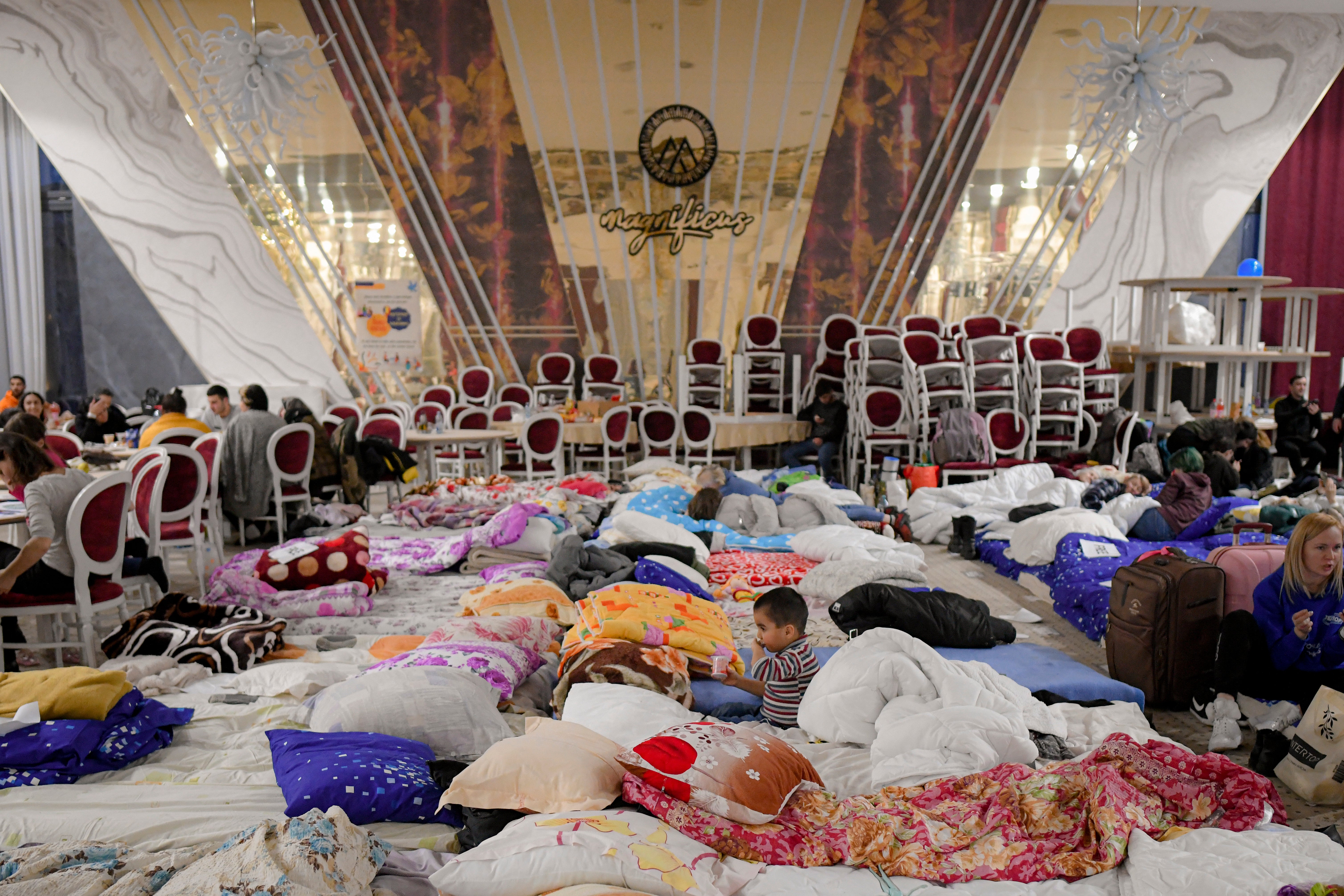
But beyond the flow of humanity, there are other, more subtle but equally dramatic, shifts. For eastern European countries, which have long-standing political and cultural ties to Russia, the rupture has been abrupt and shocking. Years of cultivating ties to the Kremlin in an attempt to glean understanding and insight, via back-channel diplomacy and late-night drinks with Russian counterparts, have suddenly come to naught as Moscow becomes a pariah.
“The reality is, it’s incredibly crazy what has happened,” says Liviu Muresan, a former senior security and defence adviser to the Romanian government and president of Eurodefense Romania, a think tank. “Suddenly, in a day, Russia has disappeared as a nation, as a partner.”
The next challenge will be economic. Gas and oil prices are rocketing, fuelling already record-breaking inflation and cost of living increases across Europe. Several nations have begun taking steps to up military spending – a move that is likely to transform the balance between guns and butter, and to strain the sometimes generous social welfare programmes that have been a staple of European life for decades.
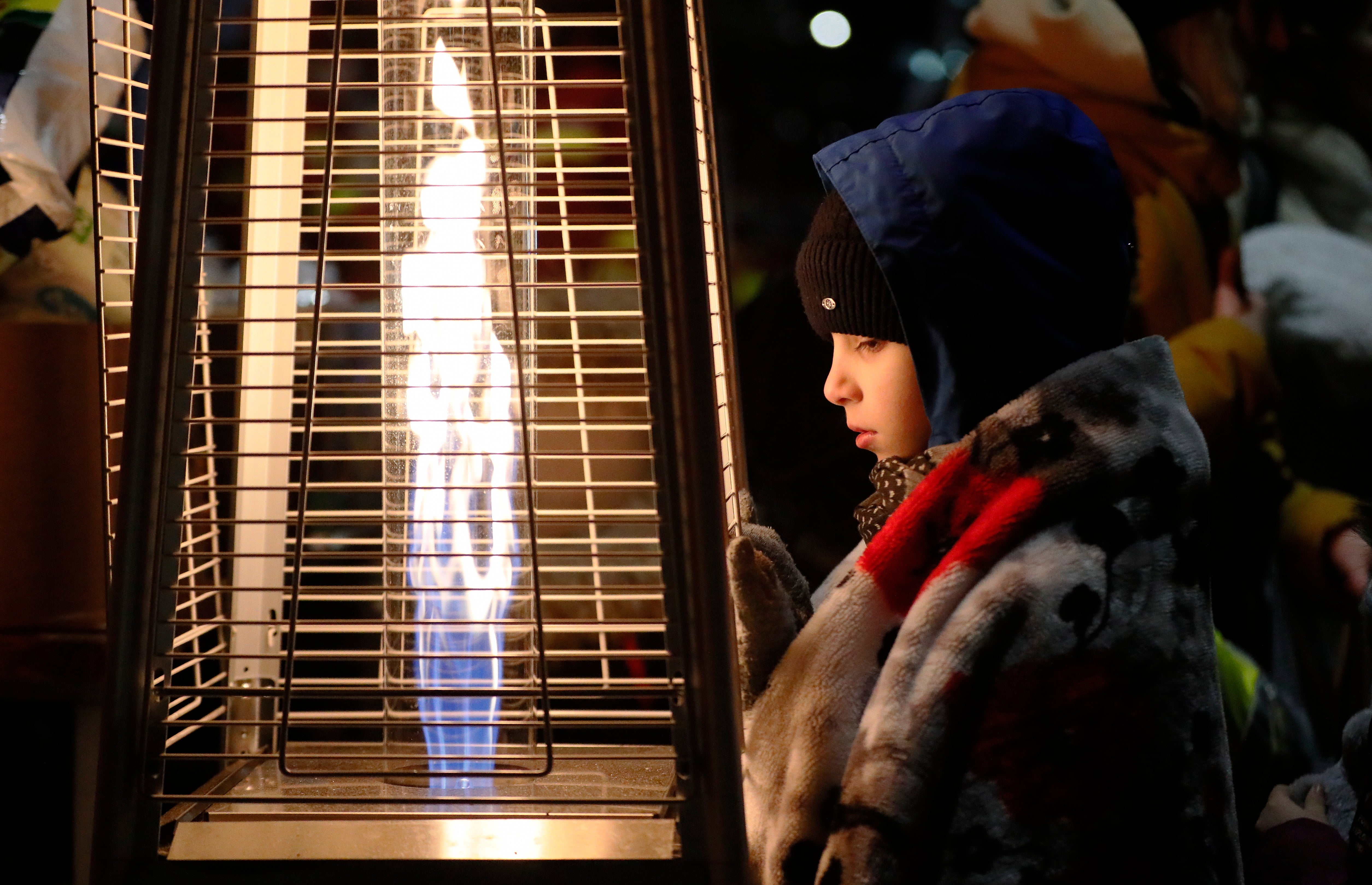
Everything from what people pay at the supermarket for groceries to what they watch on television will change, caution numerous observers. Alongside the vast new set of sanctions on Russia, untangling what one analyst called “the spaghetti bowl of interests” between Moscow and European nations will take years and cause pain and dislocation. Europe now receives 40 per cent of its energy resources from Russia, a dependency that will take years to shake off.
“It’s going to reshape everything on the economic side,” says Flavius Caba-Maria, an analyst at Romania’s Middle East Political and Economic Institute. “Europe needs to redefine its energy policy and find other reliable sources.”
Behind the scenes, Nato nations are collaborating to position weapons along the Ukrainian border and get them inside the country, in a massive effort to arm those fighting Russia, turning nations such as Poland and Romania into lifelines for the war against Putin’s ambitions. According to CNN, at one undisclosed base near the frontier, the number of transport planes bringing weapons and supplies to Ukraine has jumped from a handful to as many as 17 per day.
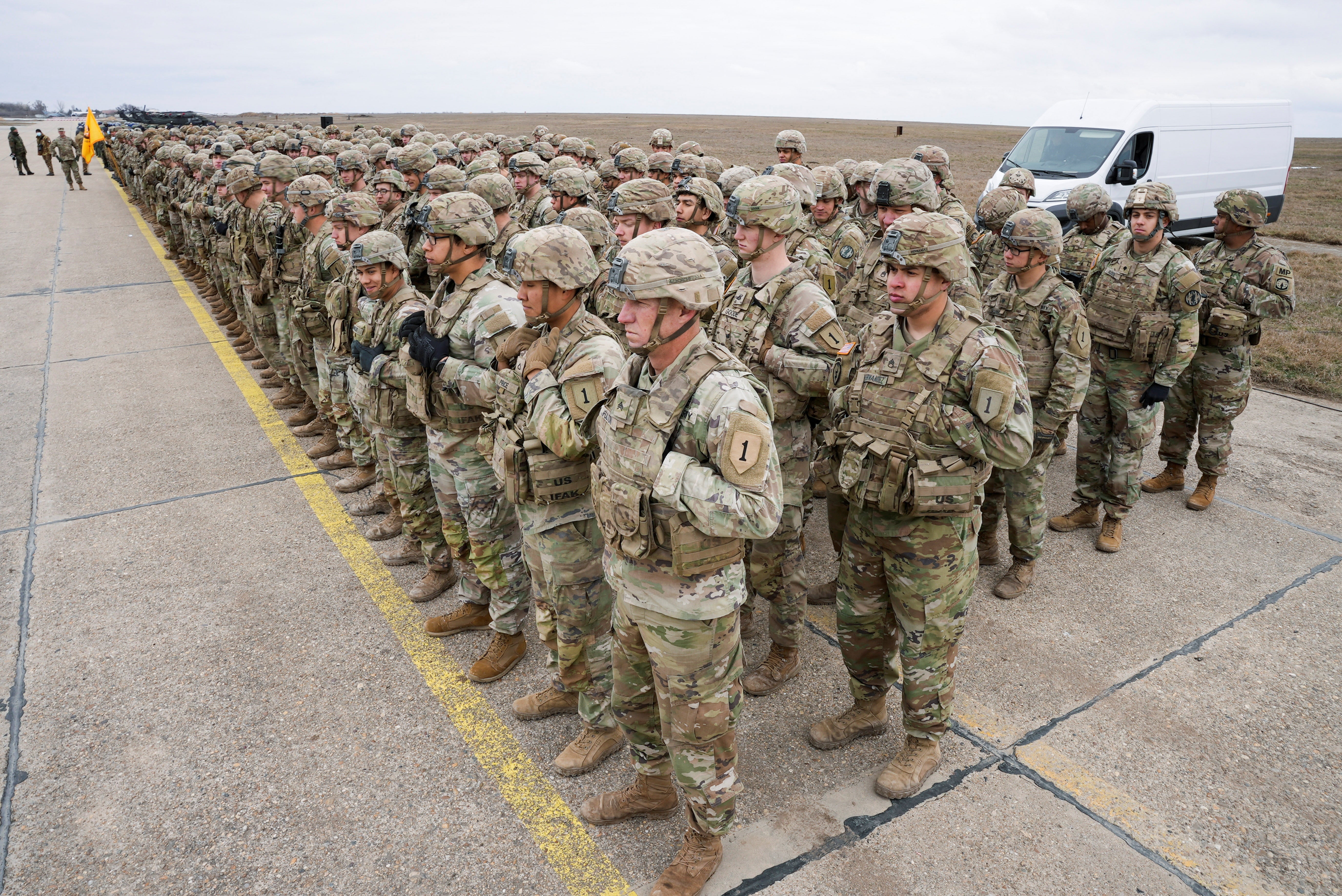
The United States has allocated $350m (£266m) in military aid, and says $10bn more is on the way. A plan has also been put in place to get Soviet-era weapons – including fighter jets – from former eastern bloc countries such as Poland into the hands of the Ukrainian armed forces, who already know how to use these weapons.
European nations have for years been discussing ways to bolster their own security. Those lukewarm talks have suddenly taken on a new urgency. “It’s a complete change of the perception of the guys here in Europe about European defence and security,” says Muresan. “It’s nice to have a theoretical and scientific decision about how to build European security. But now we have to reinvent everything.”
The speed and abruptness of the change has caught many by surprise. Overnight, people who downplayed the threat of Russia have changed their tone, and those – especially in the Baltics and Poland – who have long warned of Putin’s endgame are being proved right. “Russia exceeded everyone’s worst expectations,” says Maria Malksoo, a senior researcher at the centre for military studies in Copenhagen. “Very basic questions are being asked about what security means and what we’re willing to fight for. For years, Nato has not been sure what it is for. I guess now you can see there is a good reason for it.”
Perhaps acting on the caricatures of the west regurgitated by Kremlin-backed media, Putin appears to have badly miscalculated western resolve and unity
Beyond the war, there are the challenges that will come afterwards. They include the reconstruction of Ukraine, as well as somehow reintegrating Russia into the world community – perhaps after Putin is toppled or passes on. Muresan says he worries that the supply of small arms flowing into Ukraine will eventually find their way into the hands of criminals, giving birth to a new generation of traffickers and gangs, just as the Balkan wars of the 1990s turned that region into a hub of drugs and contraband.
“It’s impossible to collect all the weapons,” he says. “It will be a huge opportunity for organised crime.”
Political leaders are struggling to prepare their people for the economic and security challenges, and the social turmoil, ahead. But many of them are inexperienced, considered lightweights even by their own supporters. Often they are career politicians heading wobbly coalition governments, ill-prepared to lead nations through historic tests.
Romanian president Klaus Iohannis has struggled to communicate even mundane matters to the public, and was once cut off by a major radio station when the audio software confused his long pause with the end of his speech. Poland’s president Andrzej Duda, though a staunch defender of Nato, has spent much of his political career using divisive right-wing populism to demonise gay people and women rather than unifying his nation against external, existential threats.
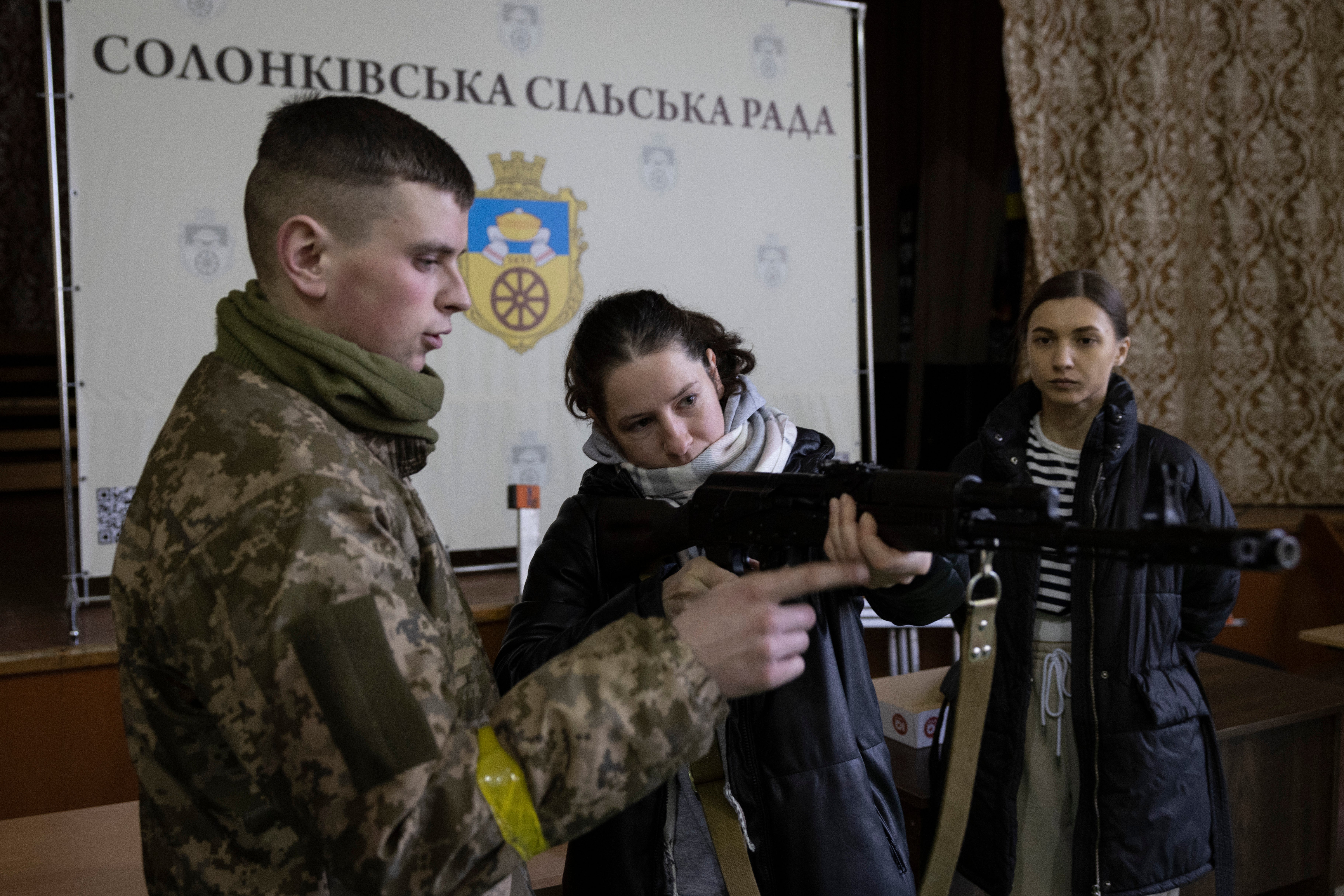
Hungary’s Viktor Orban has spent 12 years convincing his supporters that Russia is his nation’s staunch ally, abruptly reversing course after 24 February and jumping on the anti-Russia bandwagon. Very few of the west’s current political leaders, from US president Joe Biden and France’s Emmanuel Macron to Germany’s Olaf Scholz and Britain’s Boris Johnson, have substantive military or security experience – unlike Putin, who is a former KGB spy.
“Our leaders aren’t better or worse than the people they came from,” says Balaceanu. “The democratic societies don’t want an iron fist. But in this crisis situation, you may need that.”
Putin appears to have badly miscalculated western resolve and unity. Perhaps acting on the caricatures of his opponents regurgitated by Kremlin-backed media and its enablers and signal-boosters in the west, he may have calculated that the squabbling and greedy European and North American interests would continue to dither before taking decisive action against him on Ukraine, as they did when he attacked Georgia in 2008, annexed Crimea in 2014, and launched a horrific campaign of bombing against Syrians in 2015.
But the images of Ukrainians fighting valiantly to defend western values, and suffering and dying for it, have galvanised and unified the Nato alliance like never before, even if most of the price is being paid by Ukrainians. “There’s a real sense of tragedy to what is unfolding in Ukraine,” says Malsoo. “Ukrainian blood will be the price for weakening, if not toppling, the regime and war machine of Russia.”
Adina Florea contributed to this report




Join our commenting forum
Join thought-provoking conversations, follow other Independent readers and see their replies
Comments